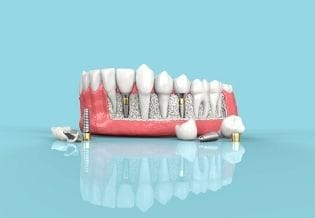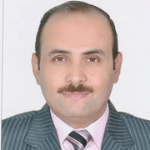About the Journal
A trusted open access home for dentistry and oral implant research with clinical impact.
Advancing Dental and Implant Science
JDOI publishes rigorous evidence that improves implant outcomes, patient safety, and restorative care worldwide.
Journal at a Glance
- ISSN: 2473-1005
- DOI Prefix: 10.14302/issn.2473-1005
- License: CC BY 4.0
- Peer Review: Single-blind
- First Decision: 2-4 weeks from submission
- Publication: After APC confirmation and production
The Journal of Dentistry and Oral Implants (JDOI) is an open access, peer reviewed journal dedicated to advancing oral health, implantology, and restorative dentistry through rigorous, clinically meaningful research.
We publish evidence that improves patient outcomes, strengthens clinical decision making, and translates new technologies into safe, effective dental care.
JDOI bridges clinical dentistry with translational science. We welcome studies that connect biological mechanisms to implant success, surgical techniques to long term outcomes, and material innovations to patient safety.
Submissions should show clear relevance to dental or implant outcomes and provide practical insights for clinicians, researchers, and educators.
Implantology and Osseointegration
Clinical outcomes, surgical protocols, and biological integration of implant systems.
Biomaterials and Surface Engineering
Material innovation, coating technologies, and durability of dental implants.
Digital Dentistry and Imaging
CAD/CAM workflows, guided surgery, and advanced diagnostic imaging.
Prosthodontics and Rehabilitation
Restorative planning, occlusion, and long term prosthetic performance.
Periodontology and Peri-implant Health
Soft tissue management, peri-implantitis prevention, and maintenance.
Patient Outcomes and Quality of Life
Functional outcomes, esthetics, and patient reported experience measures.
JDOI prioritizes research that moves beyond theory and impacts clinical practice. Studies should explain how results inform surgical planning, material selection, or patient management.
We encourage translational work that connects laboratory findings to clinical trials, and clinical insights back to innovation in implant design.
- Clear dental or implantology relevance with defined clinical outcomes
- Methodological rigor and transparent reporting
- Evidence that supports clinical decision making and patient safety
- Innovation in materials, digital workflows, or surgical techniques
- Long term outcome reporting and complication management
- Ethical compliance and data transparency
- Alignment with reporting checklists and reproducible methods
- Clear translational pathway to clinical practice
- Responsible use of AI or digital tools with validation
We welcome research on digital planning, AI assisted imaging, 3D printing, and guided implant placement that improves accuracy and predictability.
Studies that evaluate new devices, biomaterials, or workflows should include safety considerations and comparative outcomes when possible.
Robust evidence strengthens dental practice. JDOI encourages well designed clinical trials, cohort studies, and systematic reviews that follow reporting standards and include measurable endpoints.
We also value pragmatic studies and real world evidence that inform adoption across diverse practice settings.
- Randomized and pragmatic clinical trials
- Prospective and retrospective cohort studies
- Systematic reviews and meta analyses
- Technique evaluations with outcome reporting
- Biomechanical and material performance studies
Quality checks are embedded across the editorial workflow, including scope screening, ethics verification, and technical review of figures, data statements, and methodology. This ensures the research is reliable and clinically applicable.
Editors look for internal consistency between aims, methods, and conclusions, and prioritize submissions that present transparent statistics, complete reporting, and realistic clinical interpretation.
Patient safety is central to JDOI. We prioritize manuscripts that address complication prevention, peri-implant health, and risk assessment across diverse patient populations.
Studies that report adverse events, long term complications, or safety profiles of new materials and devices are especially valuable for guiding clinical adoption.
Beyond technical success, JDOI values patient reported outcomes, esthetic satisfaction, and functional recovery. Studies that capture quality of life and patient experience help clinicians select treatments that align with patient goals.
We encourage authors to use validated outcome instruments and to report follow up duration clearly.
JDOI supports the advancement of dental education and clinical training by publishing evidence that informs best practice and continuing education.
We welcome studies on training methods, clinical decision support, and practice improvement that strengthen implant care delivery.
- Clinical training and competency development
- Guideline implementation and practice standards
- Patient communication and shared decision making
- Infection control and safety protocols
- Quality improvement in dental practices
Long term success depends on maintenance and follow up. JDOI welcomes research on recall protocols, peri-implant monitoring, and long term rehabilitation outcomes.
Studies that examine maintenance strategies across patient risk profiles are particularly valuable.
- Peri-implant maintenance protocols and monitoring
- Long term implant survival and complication management
- Preventive strategies for high risk patients
JDOI upholds strict ethical standards to protect patients and the integrity of the scientific record. All submissions must include ethics approvals and informed consent where appropriate.
Conflicts of interest and funding sources must be disclosed to ensure transparency.
- IRB or ethics committee approval and consent
- Clinical trial registration identifiers when applicable
- Conflict of interest and funding statements
- Data availability statements and reporting standards
All JDOI articles are published under the CC BY 4.0 license to maximize dissemination and reuse. Open access ensures clinicians and researchers can access evidence without barriers.
We maintain structured metadata and DOI registration to improve discoverability, citation accuracy, and long term access.
Accurate metadata improves visibility in search engines, library catalogs, and clinical databases. Authors are encouraged to use clear titles, consistent affiliations, and precise keywords.
JDOI supports DOI registration and indexing ready metadata so published articles remain discoverable and citable over time.
JDOI uses single blind peer review by experts in dentistry and implantology. Editorial decisions prioritize scientific merit, methodological quality, and scope alignment.
Authors receive clear, actionable feedback to strengthen clinical relevance and reporting quality.
Submissions undergo an initial screening for scope and ethics before peer review. JDOI aims to provide first decisions within 2 to 4 weeks when reviewer availability allows.
Clear reviewer feedback helps authors revise efficiently and improve clinical impact. Authors may suggest qualified reviewers to support timely, expert evaluation.
Oral health challenges are global. We encourage international collaborations and multi center studies that compare outcomes across populations and care settings.
Studies that address access, equity, and innovation in underserved regions are especially welcome.
The editorial office provides guidance on scope, formatting, and ethical requirements to reduce delays. We support authors throughout submission, revision, and proofing.
For questions, contact [email protected] and include your manuscript title or topic area.
- Clear submission guidance and policy support
- Responsive communication during review
- Templates and checklists for reporting quality
- Support for special issue proposals and collaborations
JDOI publishes special issues that spotlight emerging topics in implantology and dental innovation. We welcome proposals that address timely clinical challenges and evidence gaps.
Guest editors collaborate with the editorial office to ensure high quality peer review and consistent scope alignment.
JDOI supports authors, editors, and reviewers with timely guidance on scope, policies, and workflows. If you need clarification on requirements, data statements, or review timelines, contact the editorial office at [email protected]. We can provide templates, examples, and best-practice recommendations to help you move forward confidently. Our responses typically include next steps, resource links, and a clear point of contact. Early communication helps avoid delays, ensures consistent compliance, and improves the overall publication experience. For database verification, APC documentation, or ManuscriptZone access issues, please email the editorial office with your manuscript title and contact details.
Publish Dental Research With Impact
Join a journal that prioritizes clinical relevance, innovation, and global visibility.


